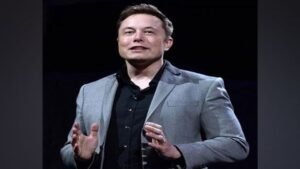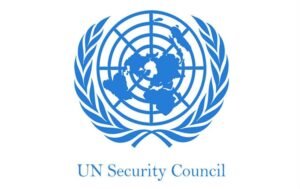On January 21st, tech billionaire Elon Musk criticized the present structure of United Nations agencies and advocated for reforms. His words revived the issue about representatives on the United Nations Security Council (UNSC), highlighting India, the world’s largest populous country,’s exclusion from permanent membership. Musk referred to this absence as “absurd” and urged for African participation.
He remarked, “At some time, the UN organizations should be revised. The issue is that individuals with extra authority are unwilling to give it up. It is absurd that India, as the world’s most populous country, does not have a permanent place on the Security Council. Africa should also have a permanent seat there.”
Support in Favor of Reforms along with Musk
Musk’s support for India’s membership in the UNSC is consistent with the country’s long-standing drive for a permanent seat in the UN body. Notably, President Joe Biden has consistently campaigned for India to be given a permanent place on the UN Security Council. When President Biden visited India for a G20 conference in September 2023, he expressed support for India’s permanent participation in the UN Security Council. In 2021, President Biden restated the United States’ support for India’s permanent seat on the UN Security Council. In addition to the United States, the United Kingdom has restated its support for India’s permanent representation at the United Nations.

The CEO of Tesla and Space X also campaigned for Africa’s presence at the highest levels, proposing that the continent be granted a permanent seat in the Council. His comments echoed the larger argument that the UNSC’s existing composition does not reflect the geopolitical realities of the twenty-first century. Notably, during his January 2023 visit to India, United Nations General Assembly (UNGA) President Csaba Korosi stated that the UN Security Council must be changed. Korosi emphasized the necessity for reforms to the council’s size, makeup, and norms.
How UNSC came to be a grouping of only 5 countries?
The United Nations Security Council was created on January 17, 1946, following World War II, with the primary goal of preserving international peace and security.
After World War II concluded, the United States and the Union of Soviet Socialist Republics (USSR) emerged as the primary winners over Germany, Italy, and Japan. Along with them, the United Kingdom helped shape the postwar political system.
Franklin D. Roosevelt, the then-President of the United States, advocated for the inclusion of the Republic of China, while the United Kingdom desired France’s admission as a buffer against future German attacks.

How is UNSC membership decided?
For several years, India has frequently advocated for a permanent seat on the UN Security Council, claiming that the current body’s representation was lacking.
To become a ‘permanent’ member of the UNSC, a country must have the support of two-thirds of the UN General Assembly as well as all of the P5. While the first criterion is rather simple to meet, the second is more difficult.This is because the five permanent members each have a veto. As a result, even if the other four countries achieve an agreement, if one nation votes against a proposal, it will be rejected.
Has India ever held UNSC seat in the past?
India has been chosen as a non-permanent member of the distinguished UN council on eight separate occasions: 1950, 1967, 1972, 1977, 1984, 1991, 2011, and 2020.
During former Prime Minister Jawaharlal Nehru’s 1949 visit to the United States, the idea of India becoming a permanent member of the UN Security Council was initially discussed.
The United States had stated that it would support India’s ambition for a permanent seat in exchange for the country’s help against the Soviet Union.

However, Nehru allegedly declined the offer and instead supported China’s admission to the UN Security Council.
A second offer arrived in 1955 from the Soviet Union. Then, Premier Nikolai Bulganin is claimed to have offered India the position of sixth permanent member of the United Nations Security Council. However, Nehru likewise declined the offer, as stated in “Selected Works of Jawaharlal Nehru”.
India has consistently emphasized UNSC changes, citing contemporary global circumstances and its rising geopolitical importance, as seen by its successful diplomatic achievement at the recent G20 Summit in forging an agreement on the Russia-Ukraine issue.











Comments 1